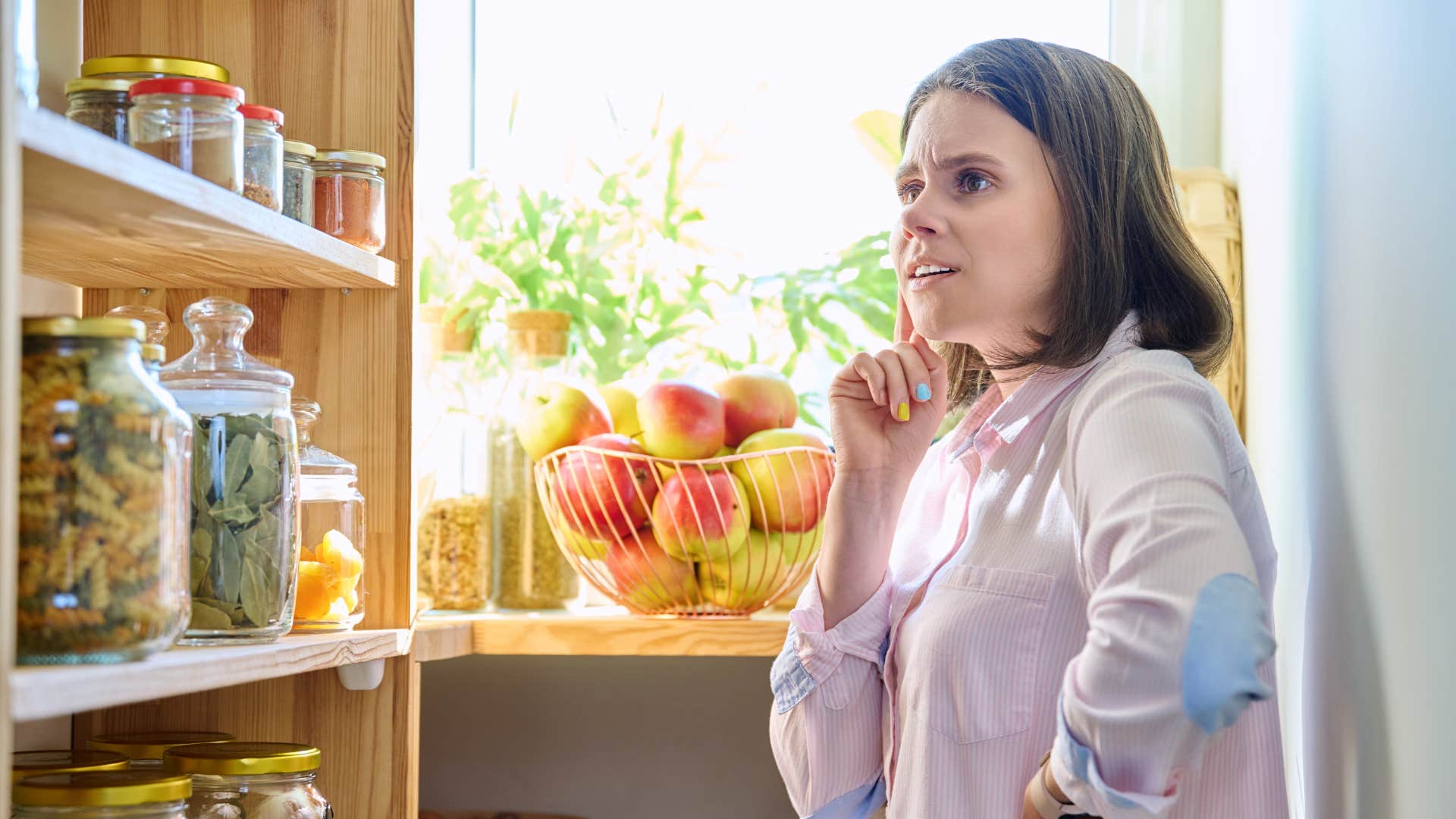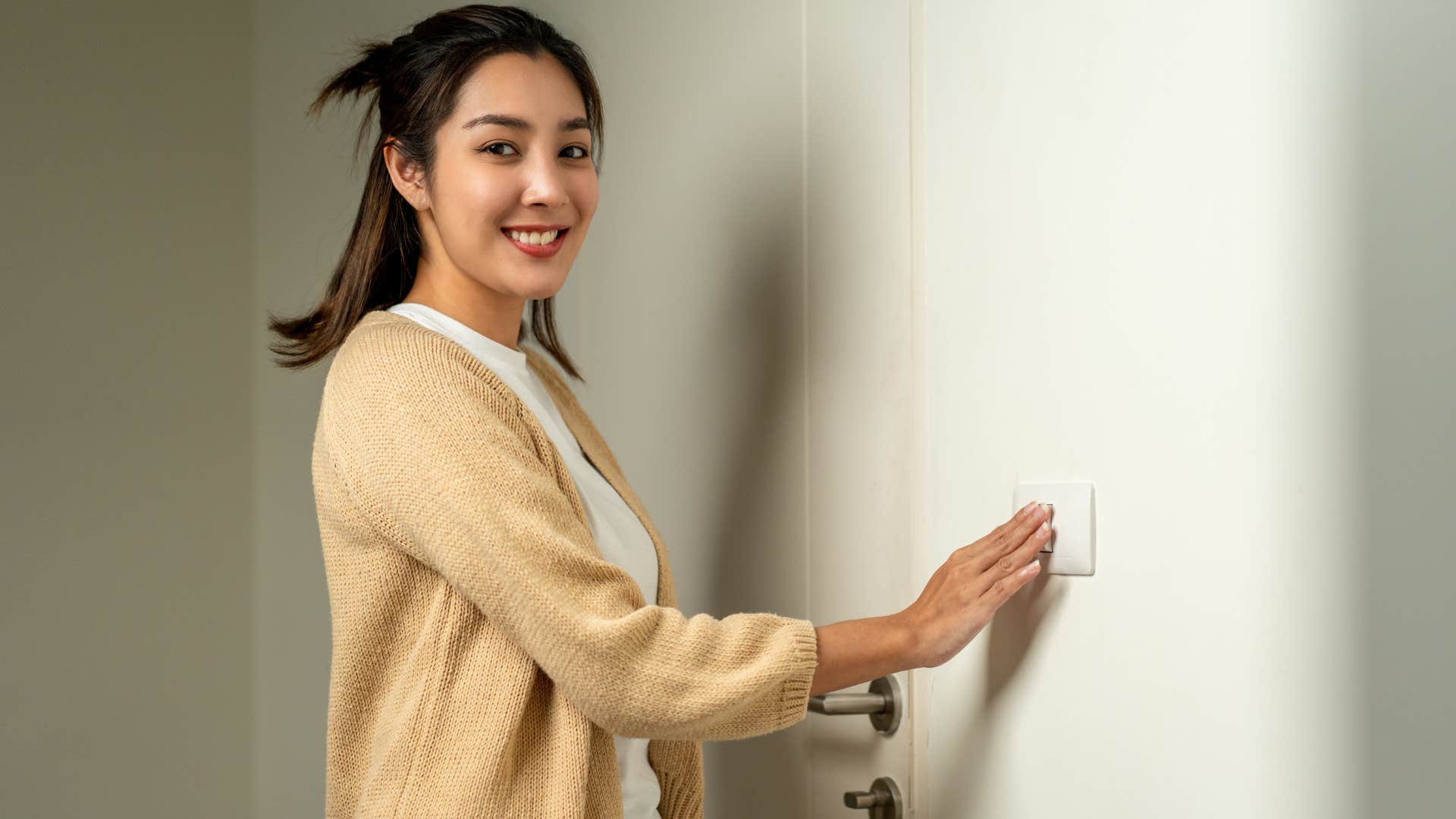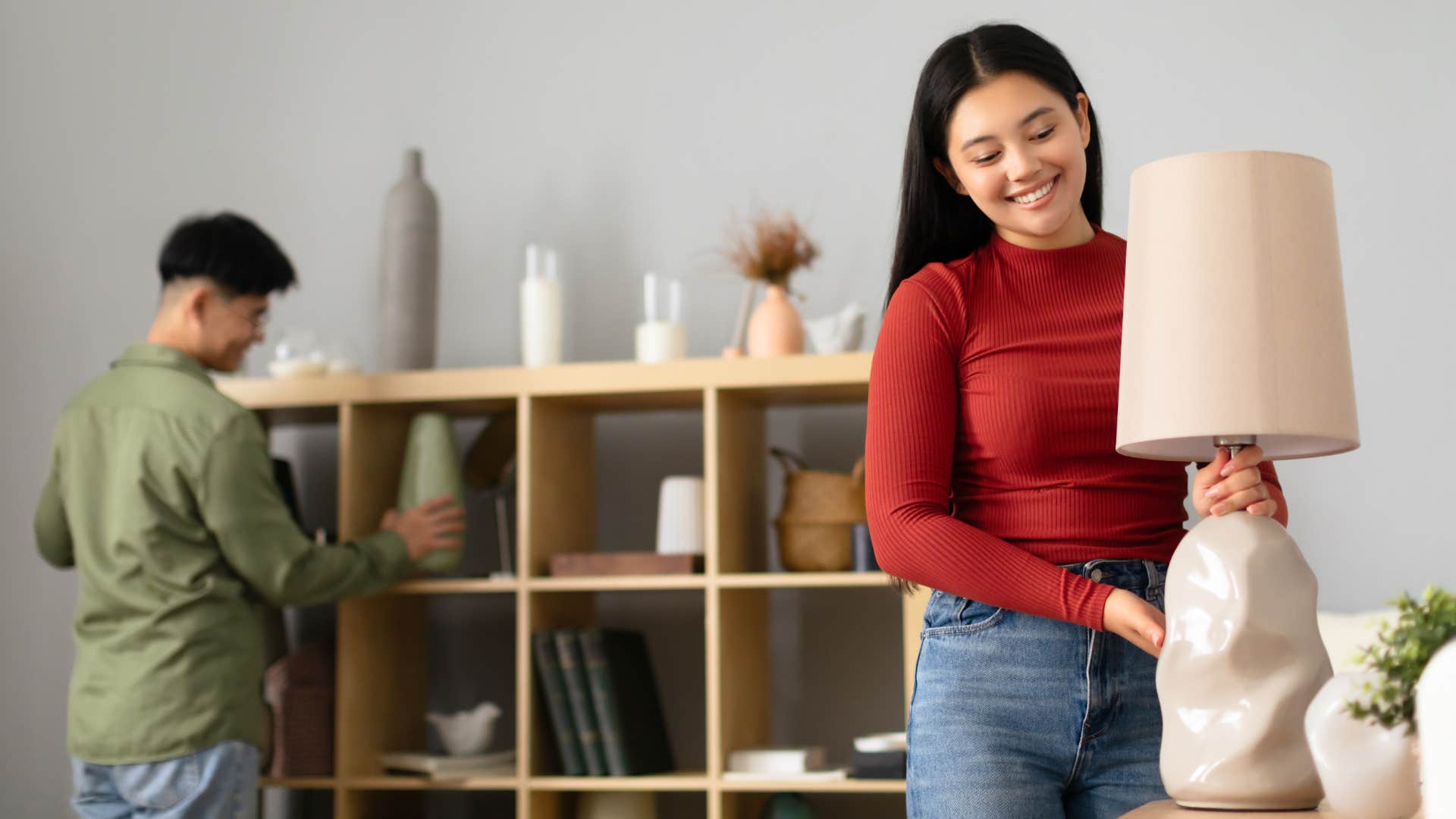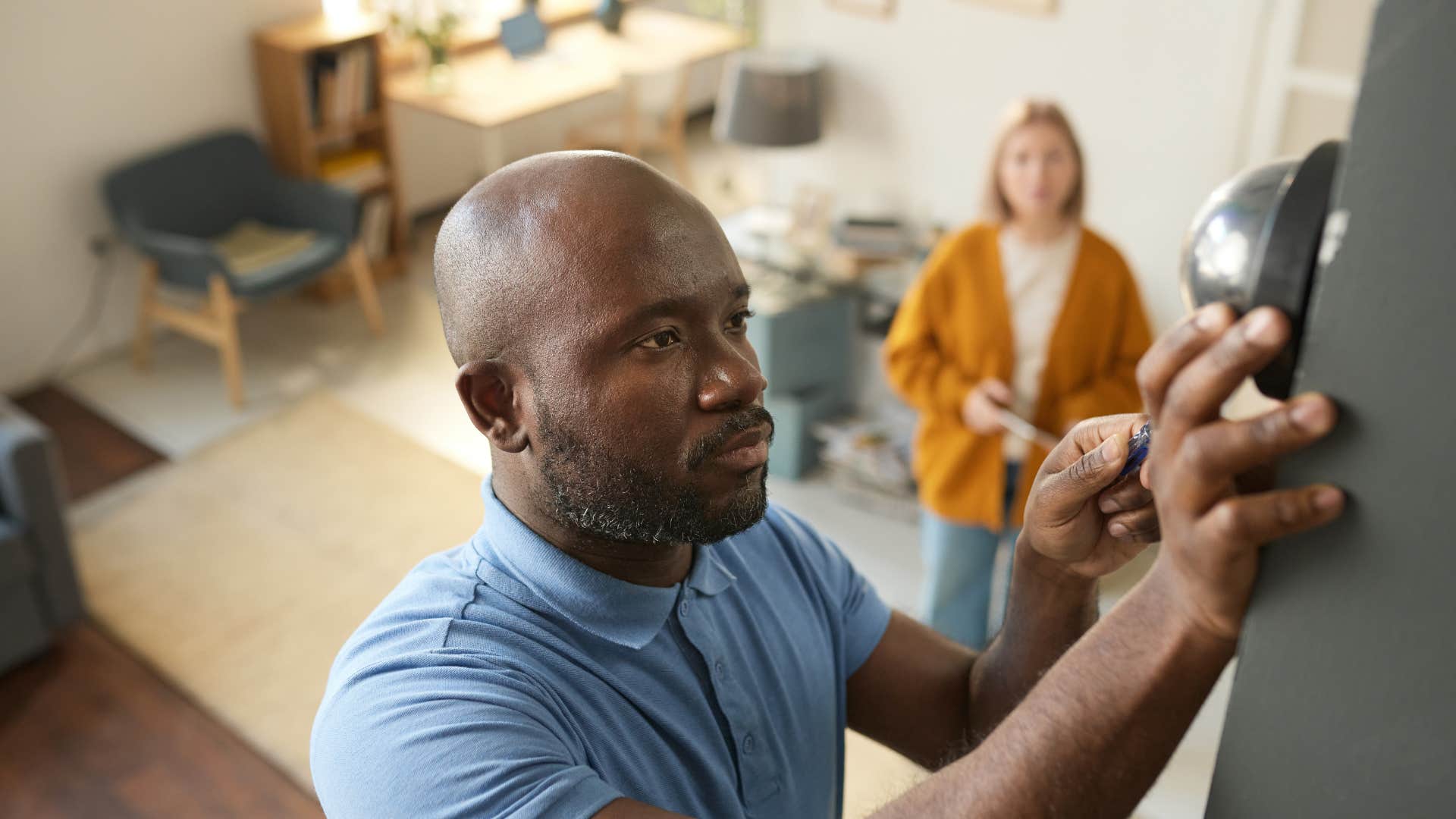11 Things Frugal People Notice When They're Invited To Someone Else's House
When frugal people visit someone's home, they are on the lookout for some pretty particular items.
 Ground Picture / Shutterstock
Ground Picture / Shutterstock As soon as a frugal person walks into your home, their keen eye naturally picks up on details that others might overlook. They may notice how expensive your furniture looks and how many gadgets and appliances you own. They may not intend to judge you, but they will wonder why you spend so much money on things they know you could easily get for a cheaper price that will last longer.
This awareness leads frugal guests to compare their lifestyles with yours, paying attention to everything from the way you conserve energy to how many subscription services you have on your TV. Before you open that door and greet your frugal guest, remember that they will likely be silently inspecting your home.
Here are 11 things frugal people notice when they're invited to someone else's house
1. Brand names and labels
 VH-studio | Shutterstock
VH-studio | Shutterstock
Frugal people are extremely observant when it comes to anything that people overspend on. One of these is brand name products. We've spoken before about how brand names are manufactured the same way that store-bought brands are, so there really isn't much of a difference between the two, other than in price. Store brands tend to be more affordable than brand names, which you're just purchasing for bragging rights of having the brand.
Exposure to certain brand names can change the way we look at costs and savings. A study published in The University of Chicago Press Journals found that exposure to brands associated with thriftiness, like Walmart, can activate cost-saving goals, while brands linked to prestige, like Tiffany, can trigger aspirations for status. Frugal people don't have a need for flashing around their status, which is why they stick to simple and affordable food brands.
2. Wastefulness
 aslysun | Shutterstock
aslysun | Shutterstock
Be wary of tossing food out in front of your frugal guests, as they'll think that you're being wasteful by throwing out that perfectly good tangerine. Even if it appears rotten to you, a frugal person would have repurposed it in compost or, in extreme cases, eaten it themselves to avoid it going into the waste bin. A study published in the American Journal of Agricultural Economics found that 31% of food purchased by households goes uneaten, amounting to about $240 billion annually.
This is a staggering amount of waste that we go through each year. Frugality is nature's way of counteracting waste in the world. A frugal person makes do with what they have, and if they need something, they would rather get it for free or make it themselves. In a world that is so quick to toss things away and replace them, frugal people don't waste anything.
3. Your energy efficiency
 GBJSTOCK | Shutterstock
GBJSTOCK | Shutterstock
Frugal people are highly attuned to how much energy is used and wasted in their homes as soon as they walk through the door. They will notice that you have the lights on in rooms that people are not even in and will gladly shut them off for you. For them, it's instinctive to do this because they do it at their own home.
Saving money on energy is something that they plan out and time when they use certain appliances. A study by the Home Energy Club revealed that 73% of Americans adopt energy-saving habits primarily to reduce their utility bills. This is a large number of savings that makes frugal people do what they do best. Not only are they saving money, but they also help the environment as a side bonus.
4. Your home furnishings
 Prostock-studio | Shutterstock
Prostock-studio | Shutterstock
Having home furnishings that are durable and cheap can warm a frugal person's heart. It's important to remember that just because something is long-lasting doesn't mean it can't be stylish. Frugal people will look at your home furnishings, wondering how much you spent on the items. If they look fancy but cost you very little, then they will approve of the choice.
A frugal guest will even notice whether your home is filled with fast-fashion furniture, where the items are stylish but likely to wear down quickly. According to a survey by Gitnux, 23% of consumers prioritized durability and warranty when purchasing home furnishings. It's about making things last with frugal people, not about the bragging rights of having cool furniture.
5. Your subscription services
 PeopleImages.com - Yuri A | Shutterstock
PeopleImages.com - Yuri A | Shutterstock
Frugal people pride themselves on getting the most value from a dollar, and seeing a house full of subscription services like Netflix or Hulu can surprise them. They will still take advantage to watch whatever they want to, especially if they are staying over at your place, but it still shocks them. People should take into account how much they pay yearly for their subscriptions and crunch the numbers. It might just change your whole perspective on things.
For example, when you pay for a yearly family plan with Spotify, you are paying approximately $23 a month with taxes, now imagine paying that for 12 months. It's roughly $276 a year. Now, imagine that out of the six people on the family plan, only three used it. A survey from Self found that the average household has 4.1 active paid subscriptions, with 85.7% of people having at least one paid subscription going unused each month. This would make any frugal person cry.
6. Unused items
 Prostock-studio | Shutterstock
Prostock-studio | Shutterstock
Frugal people will walk through the door to see a brand new pair of shoes sitting by the door collecting dust, and begin to ask you all sorts of questions. This goes on until you tell them that you simply didn't like them and intended to give them away. This is the part where they get super excited and offer to take the shoes off your hands.
While it may seem rude to some, letting things go unused is actually worse. According to a survey by So Organized Solutions, 80% of what we keep is never used again. To frugal people, these items represent money that could have been used for something else instead of on an object that is simply going to waste away there.
7. Your maintenance costs
 Media_Photos | Shutterstock
Media_Photos | Shutterstock
The first things people notice about your home are the decor and its functionality. They look at what works aesthetically and see a glimpse of your personality through the gadgets that you keep around your house. Having extremely expensive appliances and they will think that you spend your money frivolously.
To the average frugal person, they sometimes wonder how much exactly that new security system you just installed in your place costs. According to Businesswire, homeowners are spending an average of $9,924 annually on upkeep, repairs, and maintenance. They will silently ponder how often repairs or replacements will be needed, especially if the home is filled with delicate materials that don’t age well. This is because they value low operating costs.
8. Your hosting habits
 Ground Picture | Shutterstock
Ground Picture | Shutterstock
What you choose to serve your guests can tell a frugal person a lot about you. Serve something easy and affordable, like hot dogs, then they will understand your plight, but serve something fancy like crab, and they'll wonder if you hit your head. Just because you have guests doesn't mean you have to bring out the fancy plates. For frugal people, they prefer the simple things like paper plates and plastic forks.
Frugal people do appreciate homemade meals and may even feel elated when they get to take a plate home, but they never want their host to go all out on them. These folks want you to be practical and not stress yourself out too much over people. At the heart of it all, frugal guests admire hosts who can relax and use their own resourcefulness to good use.
9. What you spend on your pets
 LightField Studios | Shutterstock
LightField Studios | Shutterstock
We love and want the best for our pets, but there comes a time when we have to admit that we spend way too much money on things that they don't essentially need. According to a survey by Capital One Shopping Research, the average American pet owner spent approximately $2,026 on their pets, encompassing food, veterinary care, and other essentials in 2024. Things like gourmet pet food and even brand-new furniture that they only use once give frugal people nightmares.
Frugal people worry when they visit your home that your pet has a way nicer setup than anything else in your place. Honestly, why does your dog have a mini flat screen television in his little doggie den, but you watch television on your laptop? At the same time, a frugal visitor may admire the love and care shown to your pet, even if they wouldn't make the same financial decisions.
10. The condition of your appliances
 Monkey Business Images | Shutterstock
Monkey Business Images | Shutterstock
Frugal people will not be impressed by your new fancy appliances, but instead, they will be amazed at how you managed to keep that dishwasher you had for 20 years still running. When you start discussing how you fixed it yourself, they become even more intrigued. That's because frugal visitors love DIY repairs or gaining new, clever ways to upgrade their appliances.
Spotting high-end and rarely used gadgets will make them wonder how much you spent on something that you never use. They might even question whether the cost was worth the convenience, especially if a simpler tool could do the same job. To them, functionality and longevity always outweigh anything extravagant.
11. How you make use of your space
 Studio Romantic | Shutterstock
Studio Romantic | Shutterstock
Frugal people have a weird superpower, where they can quickly tell that a certain part of your home shouldn't be there for cost purposes. They wonder whether you really need two living rooms in your home. Frugal people know better than to accept that the rooms are two separate things. To them, they see it as wasted space that you could revitalize.
For instance, taking an extra living room and turning it into an office space or an in-home gym. Frugal guests have discreet yet valuable intel on how you can improve your space. There may not be much that they offer you in renovation costs, but giving you an idea is just as good. These are just some of the many things that frugal people notice when they go to your house for the first time.
Sylvia Ojeda is an author who has over a decade of experience writing novels and screenplays. She covers self-help, relationships, culture, and human interest topics.

